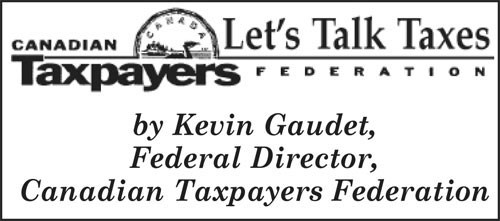Recently Parliamentarians were to vote on a motion that seeks to kill a private members bill to end the federal long-gun registry. Bill C-391 passed second reading last November with the help of 12 New Democrats, eight Liberals and one independent. Each of those MPs has been worked over by special interests and party bosses like a piñata in an effort to get them to change their vote. Now they stand to be counted.
MPs who change their vote on the registry fuel voter cynicism that politicians are not to be trusted. Further, to many Canadians - gun owners and non-gun owners alike - the registry has been a symbol of government waste for 15 years. Keeping the registry sends a message that those people don't have a voice in Ottawa when they thought they did.
Canadians were told the long-gun registry would make Canada safer. It hasn't. They were told it would only cost $4 million. Yet, only after the auditor general managed to get in the door was it revealed that costs are in the billions, and they continue unabated.
The registry was put in place by then Liberal Justice Minister Allan Rock in 1995 in response to shootings at l'École Polyte-chnique and Concordia University. It was part of a much broader package of measures, which were widely opposed. These measures included both the licensing and separate registration of all hand guns and all long-arms, a ban on semi-automatic weapons, a ban on some handguns, and stiff criminal penalties and fine for offenses.
Opponents to Alan Rock's changes compromised on all points except for wanting to end the long-gun registry. On this they make good arguments.
First, taxpayers pay all levels of government at least $185 million a year for costs associated with the registry. An RCMP report confirms the registry costs $87 million a year. Adding to this the, at least, $98 million of other costs (including, for example, policing, courts and legal aid) that arise, drives the annual tally to $185 million.
Second, while some police chiefs line up in support of the registry, front line officers have never been properly surveyed. One well-publicized online poll suggested 92 per cent do not support the registry as it does nothing to protect officer safety.
Third, criminals don't register their guns.
Fourth, twice as many homicides are due to illegal handguns than long guns. Hunter and farmers aren't the problem, gangs are.
Fifth, registering a long-gun doesn't keep it from being used for unlawful purposes.
Sixth, MPs should be allowed to vote freely on this issue as has been the long-standing tradition for Private Member's Bills in the House of Commons.
Liberal Party leader Mr. Ignatieff is ordering his MPs to vote to keep the registry and the NDP's Mr. Layton is bullying his caucus to do the same. This is a move away from democracy. There should be more free votes not fewer. With a fractious minority parliament now is the wrong time to be restricting MPs' freedom to represent their constituents.
But there's also something else brewing. The public is growing tired of this top-down-government-knows-best-attitude. Recent polls showing 72 per cent of Canadians believe the registry has been unsuccessful. This is too large a number simply to write-off as an urban rural split. The registry is a larger issue that symbolizes not only government waste but the failure of big-government solutions to policy issues.
Kevin Gaudet, Federal Director, Canadian Taxpayers Federation.
' Let's Talk Taxes' is a free commentary provided every two weeks to media outlets and opinion leaders by the Canadian Taxpayers Federation (CTF). The CTF is Canada's leading non-partisan citizens' advocacy group fighting for lower taxes, less waste and accountable government. Founded in 1990, the CTF has 74,000 supporters and seven offices across Canada. The CTF is funded by free-will, non tax-receiptable contributions.




